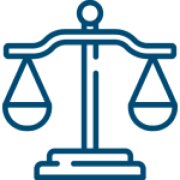Best Domestic Violence Lawyers in Cankaya
Share your needs with us, get contacted by law firms.
Free. Takes 2 min.
Free Guide to Hiring a Family Lawyer
List of the best lawyers in Cankaya, Turkey
About Domestic Violence Law in Cankaya, Turkey
Domestic violence in Cankaya, like the rest of Turkey, is a significant issue with deep roots in cultural practices and societal norms. Despite recent improvements, domestic violence remains prevalent and is often unreported due to societal stigma, fear, or misinformation. The government has introduced several laws to combat domestic violence. Important legislations include Law No. 6284 that aims towards protecting women and family members from domestic violence and the Turkish Penal Code, which criminalizes domestic abuse.
Why You May Need a Lawyer
Engaging a lawyer is critical when dealing with domestic violence in Turkey. A lawyer can provide accurate advice on the rights and protections afforded by Turkish law and can guide you through processes like reporting violence, obtaining protection orders, and navigating court proceedings. Lawyers can also support in circumstances involving divorce, custody battles, or other family disputes stemming from domestic violence. Legal aid can greatly improve the outcome and offer important safety measures for victims of domestic violence.
Local Laws Overview
Turkish domestic violence law is primarily governed by Law 6284 and the Turkish Penal Code. Law 6284 provides protective measures for victims and potential victims of domestic violence. The law allows for preventative and protective orders, provision of shelters for victims, and mandatory intervention by law enforcement. The Turkish Penal Code criminalizes physical, sexual, and psychological violence within the family. It enacts strict penalties for those found guilty, including jail time and restraining orders.
Frequently Asked Questions
What qualifies as domestic violence in Turkey?
Domestic violence in Turkey covers physical, sexual, and psychological harm or suffering, including threats of such acts, coercion or arbitrary deprivation of liberty, whether occurring in public or private life.
Can I get a protection order in Turkey?
Yes, Turkey allows courts to issue protection and preventative orders to safeguard victims or potential victims of domestic violence.
What role do the police play in cases of domestic violence?
The police are integral in enforcing laws against domestic violence. They are mandated to respond, investigate, and safeguard victims, including enforcing protection orders.
What punishments are served for domestic violence perpetrators in Turkey?
The Turkish Penal Code enacts strict penalties, including imprisonment and heavy fines for domestic violence perpetrators. The severity of the punishment depends on the nature and extent of the violence.
Is legal aid available for domestic violence victims in Turkey?
Yes, several governmental and non-governmental organizations provide legal aid to victims of domestic violence in Turkey.
Additional Resources
The Ministry of Family, Labour, and Social Services provides numerous resources for victims of domestic violence. Non-governmental organizations such as Women's Shelters and Solidarity Association also offer valuable resources and support services. The "Alo 183" hotline is a 24/7 service for emergency assistance and consulting related to domestic violence.
Next Steps
If you or someone you know is experiencing domestic violence, immediately contact the local authorities or call the "Alo 183" hotline. Engage a lawyer specialized in domestic violence issues in Turkey to understand your rights and outline appropriate legal responses. Remember, it is crucial to prioritize personal safety in situations of domestic violence.
Lawzana helps you find the best lawyers and law firms in Cankaya through a curated and pre-screened list of qualified legal professionals. Our platform offers rankings and detailed profiles of attorneys and law firms, allowing you to compare based on practice areas, including Domestic Violence, experience, and client feedback.
Each profile includes a description of the firm's areas of practice, client reviews, team members and partners, year of establishment, spoken languages, office locations, contact information, social media presence, and any published articles or resources. Most firms on our platform speak English and are experienced in both local and international legal matters.
Get a quote from top-rated law firms in Cankaya, Turkey — quickly, securely, and without unnecessary hassle.
Disclaimer:
The information provided on this page is for general informational purposes only and does not constitute legal advice. While we strive to ensure the accuracy and relevance of the content, legal information may change over time, and interpretations of the law can vary. You should always consult with a qualified legal professional for advice specific to your situation.
We disclaim all liability for actions taken or not taken based on the content of this page. If you believe any information is incorrect or outdated, please contact us, and we will review and update it where appropriate.











